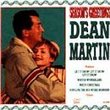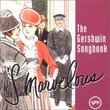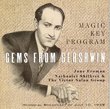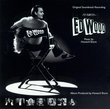| All Artists: Edvard Grieg, Thomas Beecham, Beecham Choral Society, Royal Philharmonic Orchestra, Ilse Hollweg Title: Grieg: Peer Gynt; Symphonic Dance No. 2; In Autumn; Old Norwegian Folksong with Variations Members Wishing: 0 Total Copies: 0 Label: EMI Classics Original Release Date: 1/1/1959 Re-Release Date: 1/12/1999 Album Type: Original recording remastered Genres: Dance & Electronic, Classical Styles: Forms & Genres, Symphonies, Historical Periods, Modern, 20th, & 21st Century, Symphonies Number of Discs: 1 SwapaCD Credits: 1 UPCs: 724356696624, 724356696655 |
Search - Edvard Grieg, Thomas Beecham, Beecham Choral Society :: Grieg: Peer Gynt; Symphonic Dance No. 2; In Autumn; Old Norwegian Folksong with Variations
 | Edvard Grieg, Thomas Beecham, Beecham Choral Society Grieg: Peer Gynt; Symphonic Dance No. 2; In Autumn; Old Norwegian Folksong with Variations Genres: Dance & Electronic, Classical
|
Larger Image |
CD DetailsSimilarly Requested CDs
|
CD ReviewsOne of the best of the series Robert Bezimienny | Sydney, NSW Australia | 10/16/2001 (5 out of 5 stars) "These performances are so good they actually made me reconsider the music. Prior to hearing Beecham's recording the only Grieg that I found really enjoyable were his lyric pieces played by Emil Gilels - and frankly I wondered how much of that could be attributed to Gilels. Modern versions of his orchestral music always felt a little empty and, inevitably, failed to inspire repeated listenings. This recording is so alive, vibrant and emotionally communicative that it's now a firm and much listened to favourite. Also the sound quality is hard to believe - over forty years old and it sounds better than almost all modern orchestral recordings - lots of detail and a lifelike warm tone. The recent remastering process used by EMI seems to work its wonders best with these 50's and 60's analog recordings. Anyway, this is the sort of CD I'd like to buy as a present for a good friend - just fantastic music making." Well deserves its rosette award. John Austin | Kangaroo Ground, Australia | 01/12/2001 (5 out of 5 stars) "Beecham's recording of Grieg's Peer Gynt incidental music has been one of his most frequently reissued items since its first 1957 release. Purists and fuss-budgets might cavil at the vocal items being sung in German and the omission of two of the twelve items from the complete score, but there are enough merits to make this preferable to all other versions. The inimitable swagger, the tenderness, the beauty of phrasing, and the finely judged balancing of orchestral textures that Beecham could achieve are everywhere to be heard. Other Grieg works conducted by Beecham, less well-known, have been added, to provide 76 minutes of listening. Digital remastering has enhanced and clarified the stereo originals. This is one of the few CDs to receive a rosette in the prestigious Penguin Guide To Compact Discs." Terrific, authoritative Grieg collection from Beecham Kenji Fujishima | East Brunswick, NJ USA | 10/08/2004 (5 out of 5 stars) "Okay, I'll admit that I am not as familiar with Sir Thomas Beecham's conducting as I am with, say, Herbert von Karajan's or Leonard Bernstein's. I've heard a few stories about his wise-old-man demeanor on the podium, but of his actual recordings I have heard only a handful. This is the only disc of his that I personally own, but it is a beauty. The booklet notes talk about Beecham's dedication to Grieg's music, especially his lesser-known works; that dedication is apparent in all of these performances. Of all recordings of selections from Grieg's complete incidental music for Ibsen's PEER GYNT, Beecham's would probably rank near the top, if not all the way at the top. The highlight of the performance, for me, is "Ase's Death", which I've never heard done as solemnly and beautifully (or as slowly) as it is here by the Royal Philharmonic Orchestra strings under Beecham's direction. The rest is just as vividly characterized (wonderful "Morning", especially), with Ilse Hollweg making for a touching Solveig in "Solveig's Song" and "Solveig's Lullaby".
As for the fill-ups: Grieg's "Symphonic Dance No. 2" may not be a very substantial work, but Beecham makes a good case for it, wonderfully sentimental in the outer sections and troubled in the middle section. The concert overture "In Autumn" is also a fun and dramatic work; and the "Old Norwegian Folksong with Variations" is full of life and color through its many variations, especially in its final ones. The recorded sound is rich, warm analogue that truly brings out the luster of these performances. All in all, these are some terrifically authoritative Grieg performances from a conductor who apparently loved these works and was able to translate that affection into performance. Highly recommended." |

 Track Listings (13) - Disc #1
Track Listings (13) - Disc #1







